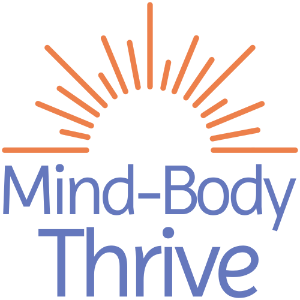Supporting A Loved One in Recovery
Jun 04, 2022
Supporting a loved one in recovery from food and body image issues requires understanding, empathy, and a non-judgmental approach. Here are some ways you can provide support during their journey:
-
Educate Yourself: Take the time to educate yourself about the challenges and complexities of food and body image issues. Learn about the various types of eating disorders, their potential causes, and the recovery process. This knowledge will help you understand what your loved one is going through and enable you to provide more informed support.
-
Communicate with Empathy: Approach conversations with empathy, compassion, and a non-judgmental attitude. Create a safe space for your loved one to share their thoughts and feelings without fear of criticism or misunderstanding. Be patient and listen actively, allowing them to express themselves openly. Avoid offering unsolicited advice and instead focus on being a supportive listener.
-
Encourage Professional Help: Suggest and support the idea of seeking professional help. Eating disorders and body image issues often require specialized treatment from healthcare professionals such as therapists, registered dietitians, and medical practitioners experienced in this area. Encourage your loved one to reach out for professional support and offer to help them find appropriate resources and treatment options.
-
Avoid Triggering Language and Behaviors: Be mindful of your language and behaviors, as certain words or actions can be triggering for individuals in recovery. Avoid commenting on their appearance or making weight-related jokes. Refrain from discussing diets, weight loss plans, or engaging in body-shaming conversations. Instead, focus on supporting their overall well-being, self-acceptance, and self-care.
-
Foster a Healthy Environment: Create an environment that promotes a healthy relationship with food and body image. Encourage balanced and intuitive eating practices, including regular meals and snacks. Avoid judging food choices and emphasize the importance of nourishing the body. Engage in activities that focus on self-care, body positivity, and overall well-being, such as practicing mindfulness, engaging in physical activities for enjoyment, or pursuing creative outlets.
-
Be Patient and Understanding: Recovery from food and body image issues can be long and challenging. Be patient with your loved one and understand that setbacks are a normal part of the journey. Offer support consistently and remind them that you are there for them, even during difficult times. Celebrate their progress, regardless of size, and remind them of their strengths and resilience.
-
Encourage a Support Network: Encourage your loved one to build a supportive network of peers, support groups, or online communities to connect with others going through similar experiences. These connections can provide validation, understanding, and additional resources for their recovery journey. Offer to accompany them to support group meetings or help them find relevant communities.
Remember, supporting someone in recovery from food and body image issues requires ongoing understanding, patience, and empathy. Focus on fostering a safe and supportive environment, encourage professional help, and remind your loved one that they are not alone in their journey.
Stay connected with news and updates!
Join our mailing list to receive the latest news and updates from our team.
Don't worry, your information will not be shared.
We hate SPAM. We will never sell your information, for any reason.

